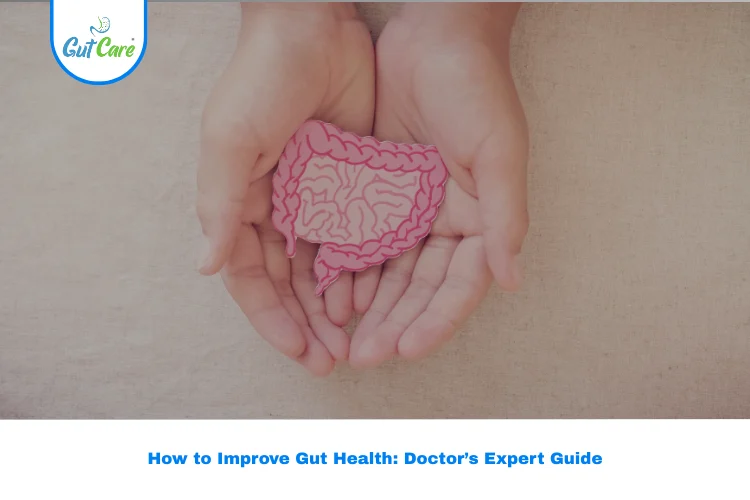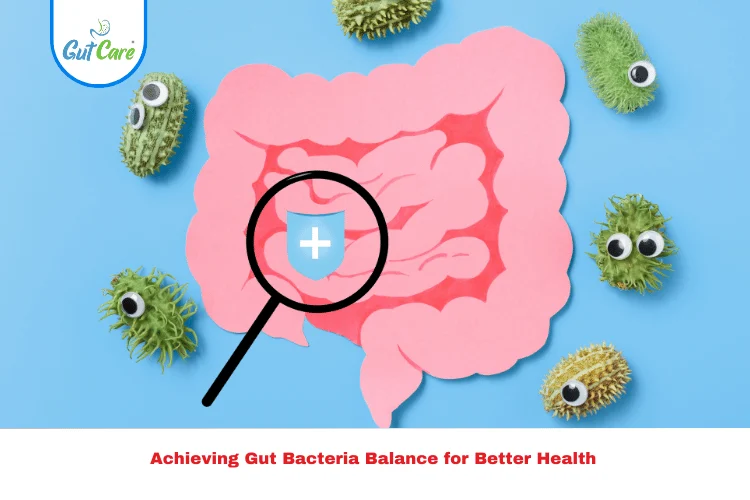If you’ve ever wondered how to improve gut health, you’re not alone. A healthy gut plays a central role in digestion, immunity, and even mental well-being. Yet, modern lifestyles often create pitfalls—irregular eating, stress, lack of sleep, and processed foods—that disrupt this delicate balance. As a proctologist and colorectal surgeon, I, Dr. Yuvrajsingh Gehlot, have seen firsthand how gut issues can lead to more serious conditions, including piles, constipation, and other colorectal disorders. At Gutcare Clinics in Bangalore, we focus on empowering patients with practical, evidence-based solutions for gut health improvement.
In this guide, I’ll walk you through simple steps to maintain a healthy gut, highlight common mistakes to avoid, and explain when it’s time to consult a specialist such as a piles doctor in Bangalore.
Why Gut Health Matters
Your gut is home to trillions of bacteria that regulate digestion, nutrient absorption, and even mood. When balanced, these microbes strengthen immunity and keep your body functioning smoothly. But when disrupted, you may experience bloating, indigestion, constipation, or more serious colorectal issues.
Common Signs of Poor Gut Health:
- Frequent bloating or gas
- Irregular bowel movements
- Chronic constipation or diarrhea
- Unexplained fatigue
- Recurrent piles or anal discomfort
If you’re experiencing persistent symptoms, consulting a piles specialist doctor or colorectal surgeon is essential.
How to Improve Gut Health Naturally
Here are proven steps you can start today to restore balance and avoid lifestyle pitfalls:
1. Eat Fiber-Rich Foods
Fiber supports digestion and keeps stools soft, reducing the risk of piles. Include:
- Whole grains
- Fruits like apples, pears, and bananas
- Vegetables such as leafy greens and carrots
- Legumes like beans and lentils
2. Stay Hydrated
Water aids digestion and prevents constipation. Aim for 8–10 glasses daily.
3. Limit Processed and Sugary Foods
Highly processed foods harm gut bacteria. Replace them with natural, whole foods to promote gut health improvement.
4. Prioritize Sleep
Poor sleep disrupts gut bacteria and digestion. Adults should aim for 7–8 hours of quality sleep every night.
5. Exercise Regularly
Physical activity stimulates bowel function, reduces stress, and supports a healthy gut. Walking, yoga, or light cardio can make a big difference.
6. Manage Stress
Chronic stress is a leading cause of digestive issues. Mindfulness, meditation, or even simple breathing exercises help regulate gut function.
Lifestyle Pitfalls to Avoid
Skipping Meals
Irregular eating confuses your digestive system and may worsen piles.
Ignoring Hydration
Dehydration leads to hard stools and straining, increasing the risk of piles.
Prolonged Sitting
Sitting for long hours without breaks increases pressure on the rectum. Stand, stretch, or walk every hour.
Self-Medication
Overusing laxatives or painkillers can damage gut bacteria and mask underlying conditions. Always seek professional guidance.
When to See a Specialist
While simple lifestyle changes can dramatically improve gut health, medical intervention is sometimes necessary.
You should consult a piles specialist doctor or colorectal surgeon if you experience:
- Severe constipation
- Persistent rectal bleeding
- Pain during bowel movements
- Recurrent or worsening piles
At Gutcare Clinics, Bangalore, we provide comprehensive care with modern treatments, ensuring patients receive the best guidance for long-term gut health. Whether you’re looking for the best doctor for piles or want preventive care, professional evaluation is the safest path.
Summary
Improving gut health requires consistent effort—balanced nutrition, hydration, exercise, stress management, and sleep. Avoiding common pitfalls like processed foods, irregular meals, and prolonged sitting also plays a vital role.
For persistent or severe symptoms, consulting an expert such as Dr. Yuvrajsingh Gehlot, a trusted proctologist and colorectal surgeon at Gutcare Clinics in Bangalore, ensures safe, effective, and lasting solutions.
Remember: your gut is the foundation of overall health—treat it with care.
FAQs on how to improve gut health
1. How to improve gut health at home?
You can improve gut health by eating fiber-rich foods, drinking plenty of water, exercising regularly, and managing stress. Avoid processed foods and prioritize sleep.
2. When should I consult a piles specialist doctor?
If you notice rectal bleeding, severe constipation, or pain during bowel movements, it’s time to see a piles specialist doctor for proper evaluation.
3. Who is the best doctor for piles in Bangalore?
Dr. Yuvrajsingh Gehlot at Gutcare Clinics is widely recognized as one of the best doctors for piles in Bangalore, offering advanced treatment options and personalized care.
4. What lifestyle habits damage a healthy gut?
Skipping meals, consuming processed foods, chronic stress, and lack of sleep can all disrupt gut health and lead to digestive problems.
5. Can a colorectal surgeon help with gut health improvement?
Yes, a colorectal surgeon specializes in diagnosing and treating conditions like piles, fissures, and chronic constipation, ensuring long-term gut health improvement.




